Growing up in a household affected by alcoholism creates ripples that extend far into adulthood. If you’re an adult child of an alcoholic (ACoA), you may find yourself grappling with patterns and challenges that seem mysterious until you understand their origins. This comprehensive guide explores the common experiences of ACoAs, how these early experiences shape adult life, and most importantly, pathways toward healing and growth.
The Hidden Legacy: Common Issues for Adult Children of Alcoholics
The Survival Roles We Learned
Children in alcoholic families often develop specific roles to cope with chaos and unpredictability. These roles, identified by therapist Sharon Wegscheider-Cruse in her groundbreaking work Another Chance: Hope and Health for the Alcoholic Family, become deeply ingrained patterns that persist into adulthood:
The Hero takes on excessive responsibility, becoming the family’s achiever and problem-solver. As adults, heroes often struggle with perfectionism, workaholism, and difficulty delegating. They may feel that nothing they do is ever good enough, despite outward success.
The Scapegoat acts out the family’s dysfunction through rebellious behavior. In adulthood, scapegoats may struggle with authority, experience difficulty maintaining stable employment, or continue patterns of opposition that no longer serve them.
The Lost Child withdraws into fantasy and isolation to escape family chaos. As adults, they may struggle with social anxiety, have difficulty forming close relationships, and feel invisible or unimportant in group settings.
The Mascot uses humor and distraction to deflect from family pain. Adult mascots often struggle to be taken seriously, use humor to avoid intimacy, and have difficulty processing their own emotions.
Core Psychological Patterns
Beyond these roles, ACoAs often share common psychological patterns that emerged as adaptive responses to an unpredictable childhood environment:
Hypervigilance and Control Issues: Growing up never knowing which version of your parent would walk through the door creates a persistent state of alertness. Many ACoAs become highly attuned to others’ moods, constantly scanning for potential threats or changes in emotional atmosphere. This hypervigilance, while protective in childhood, can lead to exhaustion, anxiety, and difficulty relaxing in adulthood.
Trust and Abandonment Issues: When a parent’s primary relationship is with alcohol, children learn that they cannot rely on consistent care or emotional availability. This fundamental breach of trust often manifests as either excessive self-reliance (never asking for help) or anxious attachment (constantly fearing abandonment in relationships).
Emotional Dysregulation: In alcoholic families, emotions are often either explosively expressed or completely suppressed. Children don’t learn healthy emotional expression or regulation. As adults, ACoAs may swing between emotional numbness and overwhelming feelings, struggling to find a middle ground.
Shame and Self-Worth: Many ACoAs internalize a deep sense of shame, believing that if they were somehow better, different, or more lovable, their parent wouldn’t drink. This toxic shame becomes a core belief that “I am defective” rather than “something bad happened to me.” John Bradshaw’s work on toxic shame explores this concept in depth.
The Relationship Maze: How Growing Up with Alcoholism Affects Adult Connections
Intimate Relationships
The impact on romantic relationships can be profound and multifaceted. Many ACoAs find themselves repeating familiar patterns, unconsciously drawn to partners who recreate the chaos, unavailability, or unpredictability of their childhood home. This isn’t masochism; it’s the pull of the familiar, even when that familiar is painful.
Common relationship patterns include:
Caretaking and Codependency: Having learned to anticipate and manage an alcoholic parent’s needs, many ACoAs become chronic caretakers, losing themselves in their partner’s problems. They may feel most comfortable in relationships where they’re needed rather than simply wanted. Melody Beattie’s classic book Codependent No More addresses these patterns directly.
Fear of Conflict: After witnessing alcohol-fueled arguments, many ACoAs become conflict-avoidant, suppressing their needs and opinions to maintain peace. This creates relationships built on false harmony, where resentment builds beneath a calm surface.
Difficulty with Intimacy: True intimacy requires vulnerability, something that felt dangerous in an alcoholic home. ACoAs may maintain emotional distance even in committed relationships, struggling to fully trust or reveal themselves.
Attraction to Unavailable Partners: The intermittent reinforcement of an alcoholic parent’s affection can create a template where inconsistent love feels normal. ACoAs may find stable, available partners “boring” while feeling attracted to those who are emotionally unavailable, married, or struggling with their own addictions.
Friendships and Social Connections
The effects extend beyond romantic relationships. Many ACoAs struggle with:
- Setting appropriate boundaries (either too rigid or too porous)
- Distinguishing between helping and enabling
- Trusting others enough to form deep friendships
- Feeling comfortable in social situations without a defined role
- Managing social anxiety without using alcohol themselves
Beyond the Personal: Effects on Religious and Political Beliefs
Religious and Spiritual Impacts
The relationship with alcohol in the family often profoundly affects spiritual development. Some ACoAs embrace rigid religious structures that provide the rules and predictability absent in childhood. The clear moral framework and sense of community can feel healing after chaos.
Others reject religion entirely, especially if their alcoholic parent oscillated between religious fervor and drunken behavior, creating associations between spirituality and hypocrisy. Many ACoAs struggle with the concept of a loving higher power, having projected their earthly parent’s unreliability onto spiritual figures.
A third group may find themselves drawn to alternative spiritual practices that emphasize personal healing and growth, seeking spiritual frameworks that acknowledge trauma and provide tools for transformation.
Political and Social Beliefs
Growing up in an alcoholic family can shape political worldview in complex ways:
Authority and Rules: Some ACoAs become rule-followers, finding comfort in structure and clear hierarchies. Others develop a deep distrust of authority, having learned that those in power (parents) can be unreliable or harmful.
Views on Personal Responsibility: The family dynamics around addiction can create polarized views. Some ACoAs may adopt extremely individualistic political views, believing everyone must save themselves as they had to. Others may embrace collective responsibility, understanding how environmental factors shape individual struggles.
Social Safety Nets: Experiences with family dysfunction may lead to strong opinions about social services, mental health funding, and addiction treatment. Some become advocates for robust support systems they wished existed for their family. Others may harbor resentment toward those who “can’t handle their problems.”
Recognizing the Symptoms: A Comprehensive Checklist
If you’re wondering whether your childhood experiences with alcoholism are affecting your adult life, consider whether you experience these symptoms. The ACoA World Service Organization provides a detailed “Laundry List” of 14 traits commonly found in adult children:
Emotional Symptoms
- Chronic feelings of emptiness or numbness
- Sudden emotional outbursts that feel disproportionate to the situation
- Persistent anxiety, especially in calm situations
- Depression that seems unconnected to current circumstances
- Difficulty identifying or expressing emotions
- Feeling responsible for others’ emotions
- Chronic guilt or shame
Behavioral Symptoms
- Perfectionism and fear of making mistakes
- Procrastination or paralysis when facing important decisions
- Compulsive behaviors (overworking, overeating, excessive exercise)
- Difficulty starting or completing projects
- People-pleasing at the expense of your own needs
- Avoiding conflict at all costs
- Difficulty saying no or setting boundaries
Cognitive Symptoms
- Constant self-criticism and negative self-talk
- Black-and-white thinking (all or nothing)
- Difficulty making decisions
- Obsessive worry about others’ opinions
- Intrusive memories or flashbacks to childhood events
- Difficulty concentrating or staying present
Physical Symptoms
- Chronic tension, especially in shoulders and jaw
- Digestive issues related to stress
- Sleep disturbances (insomnia or excessive sleeping)
- Headaches or migraines
- Autoimmune conditions (research shows correlation with childhood trauma)
- Chronic fatigue
The landmark ACE Study (Adverse Childhood Experiences) by the CDC demonstrates clear links between childhood trauma and adult health problems.
Relational Symptoms
- Pattern of unhealthy relationships
- Fear of abandonment alternating with fear of engulfment
- Difficulty trusting others
- Tendency to isolate when stressed
- Confusion about what constitutes normal relationship behavior
- Difficulty with physical or emotional intimacy
The Path Forward: Exercises for Healing and Self-Discovery
Exercise 1: The Family Rules Inventory
In alcoholic families, unspoken rules govern behavior. Identifying these rules is the first step toward changing them. Claudia Black’s work on the three rules “Don’t Talk, Don’t Trust, Don’t Feel” provides a framework for understanding these dynamics.
Take a journal and write down the unspoken rules from your childhood home. Common examples include:
- Don’t talk about the drinking
- Don’t feel or express emotions
- Don’t trust anyone outside the family
- Always appear normal to the outside world
- Children should be self-sufficient
After listing your family’s rules, write a new set of healthy rules for your adult life:
- It’s safe to express my feelings
- I can ask for help when I need it
- My needs matter
- I can trust my own perceptions
Exercise 2: The Inner Child Dialogue
Many ACoAs disconnected from their inner child to survive. Reconnecting with this part of yourself can be profoundly healing. John Bradshaw’s inner child work provides detailed guidance for this process.
Find a photo of yourself as a child, preferably around the age when things were most difficult. Sit quietly with this photo and write a letter to this child. Tell them:
- What you wish they had known
- That the alcoholism wasn’t their fault
- What you admire about how they survived
- The good things that await them in the future
Then, write a letter from your child self to your adult self. Let this child express what they need from you now.
Exercise 3: The Trigger Map
Understanding your triggers helps you respond rather than react. The National Institute on Drug Abuse offers resources on understanding addiction-related triggers that can be helpful for ACoAs.
Create a map of situations that trigger strong emotional responses. For each trigger, identify:
- The current situation
- The emotion it evokes
- The childhood memory or pattern it connects to
- A grounding statement for when this trigger arises
Example:
- Trigger: Partner coming home late
- Emotion: Panic, abandonment fear
- Childhood connection: Waiting for drunk parent, not knowing what mood they’d be in
- Grounding statement: “My partner is not my parent. I am safe. I can communicate my needs.”
Exercise 4: The Needs Inventory
Many ACoAs struggle to identify their own needs, having learned to focus entirely on others. Marshall Rosenberg’s Nonviolent Communication provides a comprehensive framework for identifying and expressing needs.
Each day for a week, check in with yourself three times (morning, afternoon, evening) and ask:
- What do I need physically right now? (Rest, movement, food, water)
- What do I need emotionally? (Connection, solitude, expression, comfort)
- What do I need mentally? (Stimulation, rest, clarity, creativity)
- What do I need spiritually? (Meaning, connection, peace, inspiration)
Notice patterns. Which needs are easiest to identify? Which are most often unmet?
Exercise 5: The Boundary Practice
Boundaries were often non-existent or violated in alcoholic homes. Learning to set them is essential for healing. Nedra Tawwab’s work on boundaries offers practical guidance for this challenging work.
Start with small, low-stakes boundary settings:
- Say no to one small request each week
- Ask for something you need but usually don’t request
- Express a preference instead of saying “I don’t care”
- Take 15 minutes of uninterrupted time for yourself daily
Notice the feelings that arise. Guilt and anxiety are normal initially. These feelings will decrease with practice.
Exercise 6: The Strength Inventory
Surviving an alcoholic household required tremendous strength and resourcefulness. Recognizing these strengths can transform them from survival mechanisms to life skills.
List the strengths you developed:
- Resilience
- Empathy
- Problem-solving abilities
- Independence
- Intuition about others’ emotions
- Creativity
- Adaptability
For each strength, write how it served you then and how you can consciously use it now in healthy ways.
Professional Resources and Support Systems
Therapeutic Approaches
Several therapeutic modalities have shown particular effectiveness for ACoAs:
Cognitive Behavioral Therapy (CBT) helps identify and change thought patterns developed in childhood. It’s particularly effective for challenging black-and-white thinking and catastrophizing. The Beck Institute provides resources and therapist directories.
Eye Movement Desensitization and Reprocessing (EMDR) can help process traumatic memories without having to verbally relive them in detail. Many ACoAs find this especially helpful for addressing pre-verbal or deeply embedded trauma. Learn more at the EMDR International Association.
Internal Family Systems (IFS) recognizes that we all have different “parts” of ourselves. This approach can be particularly healing for ACoAs who developed distinct survival roles. The IFS Institute offers resources and training.
Somatic Experiencing addresses trauma stored in the body. Since many ACoAs learned to disconnect from their bodies, this approach can help restore the mind-body connection. Visit Somatic Experiencing International for more information.
Dialectical Behavior Therapy (DBT) teaches emotional regulation skills that many ACoAs never learned in childhood. The focus on distress tolerance and interpersonal effectiveness can be transformative. Behavioral Tech provides DBT resources.
Support Groups
Adult Children of Alcoholics (ACA): A 12-step program specifically for ACoAs, offering meetings worldwide and online. The program includes a workbook and step study groups. Find meetings at their website or download their “Big Red Book.”
Al-Anon Family Groups: While primarily for those currently affected by someone’s drinking, many ACoAs find support here, especially if alcoholism continues to affect their family.
CoDA (Codependents Anonymous): Addresses codependent patterns common among ACoAs.
SMART Recovery Family & Friends: A science-based alternative to 12-step programs.
Self-Help Resources
Books for Deep Healing:
- Adult Children of Alcoholics by Janet Woititz – The foundational text
- The Drama of the Gifted Child by Alice Miller – Explores childhood trauma’s lasting effects
- Complex PTSD: From Surviving to Thriving by Pete Walker – Addresses developmental trauma
- The Body Keeps the Score by Bessel van der Kolk – Understanding trauma’s physical impact
- Running on Empty by Jonice Webb – Addresses childhood emotional neglect
Workbooks for Active Healing:
- The ACoA Trauma Syndrome by Tian Dayton
- Recovery: A Guide for Adult Children of Alcoholics by Herbert Gravitz and Julie Bowden
- The Anxiety and Phobia Workbook by Edmund Bourne
Online Resources
- ACoA World Service Organization: Meetings, literature, and resources including free downloads of introductory materials
- National Association for Children of Addiction: Education and advocacy, including resources specifically for helping professionals
- SAMHSA National Helpline: 1-800-662-4357 – Free, confidential treatment referral service available 24/7
- Psychology Today Therapist Directory: Search for therapists specializing in addiction and family issues
- BetterHelp and Talkspace: Online therapy platforms with therapists experienced in ACoA issues
- The Gottman Institute: Resources for improving relationships affected by childhood trauma
- NAMI (National Alliance on Mental Illness): Support groups and educational resources
Apps for Daily Support
- Insight Timer: Free meditation app with specific tracks for trauma healing
- Calm: Meditation and sleep stories for anxiety management
- DBT Coach: Skills practice for emotional regulation
- Youper: AI emotional health assistant for mood tracking
Creating Your Healing Journey
Healing from growing up in an alcoholic family is not a linear process. It involves grieving the childhood you didn’t have, recognizing patterns that no longer serve you, and slowly building new ways of being in the world. This journey requires courage, patience, and compassion for yourself.
Remember that the coping mechanisms you developed weren’t character flaws—they were creative adaptations to an impossible situation. The hypervigilance that exhausts you now once kept you safe. The people-pleasing that frustrates you now once helped you navigate unpredictable moods. These patterns served you then; the work now is to consciously choose which patterns to keep, which to modify, and which to release.
Moving from Surviving to Thriving
As you work through these exercises and engage with resources, you may notice shifts in how you experience the world. Relationships may become less fraught with old fears. You might find yourself able to tolerate uncertainty without catastrophizing. The constant inner criticism may quiet to a whisper, then occasionally fall silent.
These changes don’t mean forgetting or minimizing what happened. They mean integrating your experiences in a way that no longer defines or limits you. You are not just an adult child of an alcoholic—you are a whole person with a complex history, tremendous strengths, and the capacity for continued growth and healing.
The journey from survival to healing to thriving is possible. It requires work, support, and time, but countless ACoAs have walked this path before you. You’re not alone, you’re not broken, and you’re not destined to repeat the patterns of the past. Healing is possible, and it begins with understanding, continues with compassion, and flourishes with consistent, gentle effort toward the life you deserve.
For immediate support, consider calling the SAMHSA National Helpline at 1-800-662-4357 or attending an online ACA meeting today. Remember: seeking help is not a sign of weakness but a testament to your strength. The same resilience that helped you survive childhood can now fuel your healing journey. You’ve already survived the hardest part. Now it’s time to thrive.
Bibliography
Ackerman, R. J. (1987). Children of alcoholics: A guide for parents, educators, and therapists (2nd ed.). Simon & Schuster. Available on Amazon
Beattie, M. (1987). Codependent no more: How to stop controlling others and start caring for yourself. Hazelden Publishing. Author’s website
Black, C. (1981). It will never happen to me: Children of alcoholics as youngsters, adolescents, adults. MAC Publishing. Author’s website
Bowlby, J. (1988). A secure base: Parent-child attachment and healthy human development. Basic Books. Learn about attachment theory
Bradshaw, J. (1988). Healing the shame that binds you. Health Communications, Inc. Available on Amazon
Brown, S. (1988). Treating adult children of alcoholics: A developmental perspective. John Wiley & Sons. The Addictions Institute
Cermak, T. L. (1986). Diagnosing and treating co-dependence. Johnson Institute Books.
Cork, M. (1969). The forgotten children: A study of children with alcoholic parents. Addiction Research Foundation.
Covington, S. (2008). Healing trauma: A brief intervention for women. Center for Gender and Justice. Center for Gender and Justice
Dayton, T. (2000). Trauma and addiction: Ending the cycle of pain through emotional literacy. Health Communications, Inc. Author’s website
Dayton, T. (2012). The ACoA trauma syndrome: The impact of childhood pain on adult relationships. Health Communications, Inc. Author’s website
Felitti, V. J., Anda, R. F., Nordenberg, D., Williamson, D. F., Spitz, A. M., Edwards, V., & Marks, J. S. (1998). Relationship of childhood abuse and household dysfunction to many of the leading causes of death in adults: The Adverse Childhood Experiences (ACE) Study. American Journal of Preventive Medicine, 14(4), 245-258. CDC ACEs information
Forward, S., & Buck, C. (1989). Toxic parents: Overcoming their hurtful legacy and reclaiming your life. Bantam Books. Available on Amazon
Gravitz, H. L., & Bowden, J. D. (1985). Recovery: A guide for adult children of alcoholics. Simon & Schuster.
Herman, J. (1992). Trauma and recovery: The aftermath of violence from domestic abuse to political terror. Basic Books. Available on Amazon
Janet, P. (1889). L’automatisme psychologique. Félix Alcan.
Kritsberg, W. (1985). The adult children of alcoholics syndrome: From discovery to recovery. Health Communications, Inc.
Levine, P. A. (1997). Waking the tiger: Healing trauma. North Atlantic Books. Somatic Experiencing
Middleton-Moz, J., & Dwinell, L. (1986). After the tears: Reclaiming the personal losses of childhood. Health Communications, Inc.
Miller, A. (1981). The drama of the gifted child: The search for the true self. Basic Books. About Alice Miller
Miller, D., & Miller, M. (1989). Fair fighting for families: A guide to constructive arguing. University of Minnesota Press.
Ogden, P., Minton, K., & Pain, C. (2006). Trauma and the body: A sensorimotor approach to psychotherapy. W. W. Norton & Company. Sensorimotor Psychotherapy Institute
Porges, S. W. (2011). The polyvagal theory: Neurophysiological foundations of emotions, attachment, communication, and self-regulation. W. W. Norton & Company. Polyvagal Institute
Rothschild, B. (2000). The body remembers: The psychophysiology of trauma and trauma treatment. W. W. Norton & Company.
Rubin, L. B. (1996). The transcendent child: Tales of triumph over the past. Basic Books.
Schwartz, R. C. (1995). Internal family systems therapy. Guilford Press. IFS Institute
Seixas, J. S., & Youcha, G. (1985). Children of alcoholism: A survivor’s manual. Crown Publishers.
Shapiro, F. (2001). Eye movement desensitization and reprocessing (EMDR): Basic principles, protocols, and procedures (2nd ed.). Guilford Press. EMDR International Association
Siegel, D. J. (1999). The developing mind: How relationships and the brain interact to shape who we are. Guilford Press. Dr. Dan Siegel’s website
Van der Kolk, B. A. (2014). The body keeps the score: Brain, mind, and body in the healing of trauma. Viking Press. Trauma Research Foundation
Walker, P. (2013). Complex PTSD: From surviving to thriving. Azure Coyote Publishing. Author’s website
Webb, J. (2012). Running on empty: Overcome your childhood emotional neglect. Morgan James Publishing. Author’s website
Wegscheider-Cruse, S. (1981). Another chance: Hope and health for the alcoholic family. Science and Behavior Books.
Whitfield, C. L. (1987). Healing the child within: Discovery and recovery for adult children of dysfunctional families. Health Communications, Inc. Author’s website
Woititz, J. G. (1983). Adult children of alcoholics. Health Communications, Inc. Learn more about her work
Woititz, J. G. (1985). Struggle for intimacy. Health Communications, Inc.
Woititz, J. G. (1989). The self-sabotage syndrome: Adult children in the workplace. Health Communications, Inc.
Worden, J. W. (2009). Grief counseling and grief therapy: A handbook for the mental health practitioner (4th ed.). Springer Publishing Company.
Zerbe, K. J. (1993). The body betrayed: Women, eating disorders, and treatment. American Psychiatric Press.








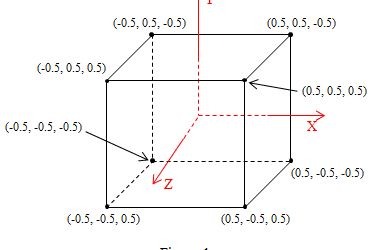


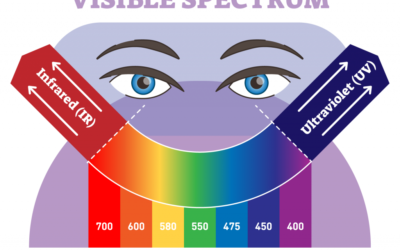




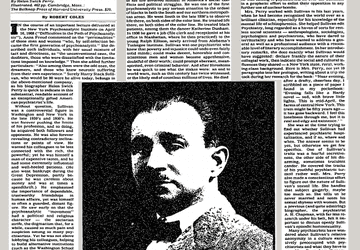

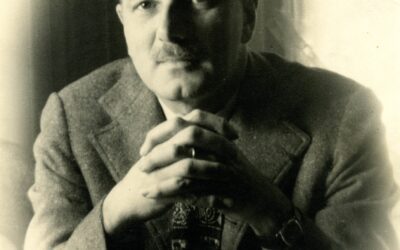


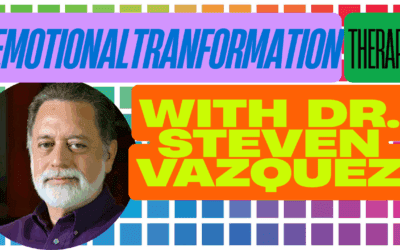



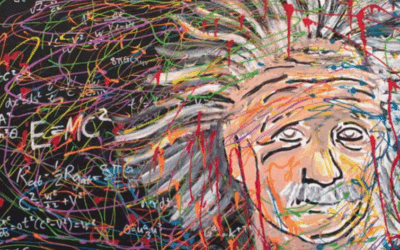

0 Comments